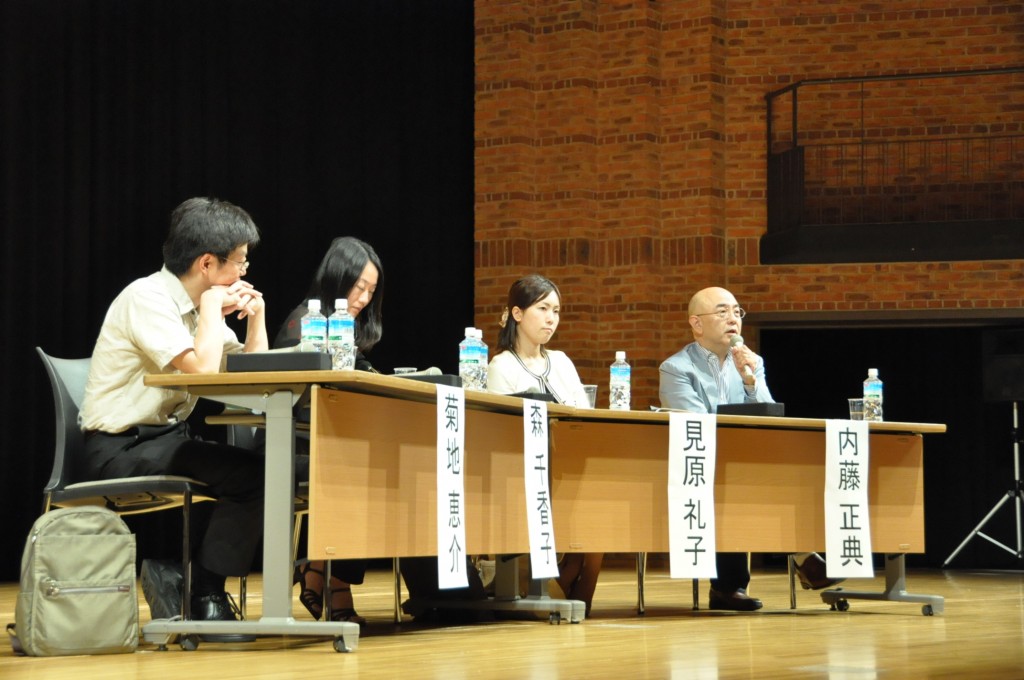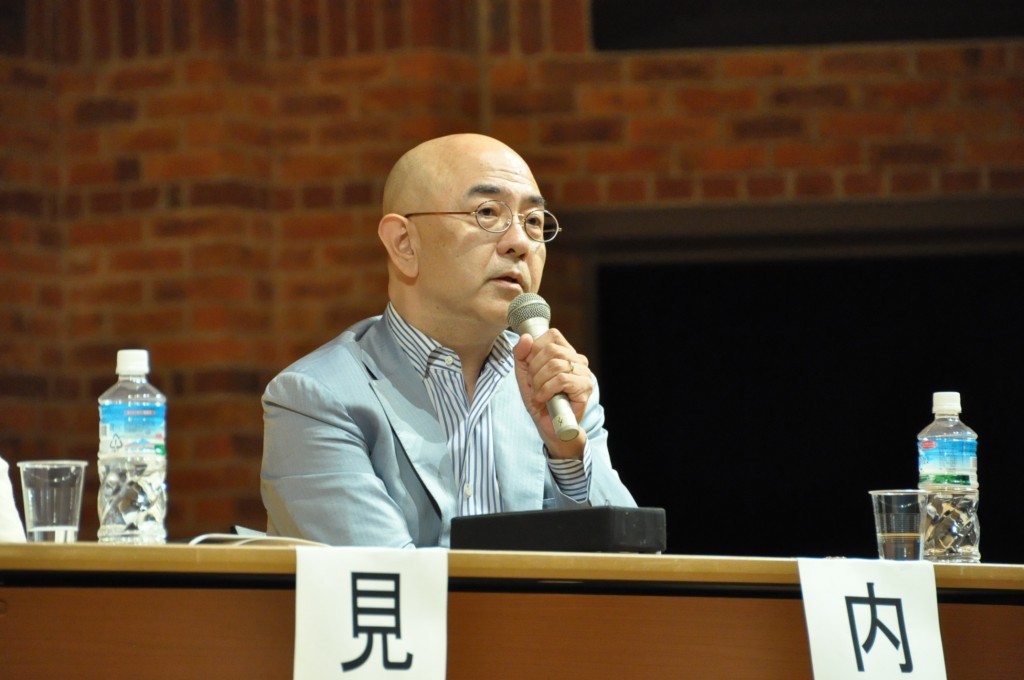Center for Interdisciplinary Study of Monotheistic Religions(CISMOR)Doshisha University
> Public Lectures > Islamophobia in EuropePublic Lectures
Documentary Film Screening/ Panel Discussion by Project2
Islamophobia in Europe
| Date: |
2011/07/20 17:00 − 20:00 |
|---|---|
| Place: | Clover Hall, Kanbai-kan B1F, Muromachi Campus, Doshisha University |
| Lecture: |
Masanori NAITO, Professor of Graduate School of Global Studies, Doshisha University Chikako MORI, Associate Professor of Nanzan University Reiko MIHARA, Assistant Professor of Doshisha University Keisuke KIKUCHI, Associate Professor of Doshisha University |
| Summary: | |
|
One of the recent issues that have continued to shake up the society of France is the so-called Muslim headscarf controversy. This is a controversy over whether or not to allow Muslim female students to wear headscarves at French public schools, which uphold the principle of secularism (“laïcité” in French). Starting in 1989, this controversy has remained over the years and was considered to have been settled when the “Law Banning Conspicuous Religious Symbols in Public Schools” was enacted in 2004. However, the controversy continues to linger. . This program was designed to consider the problem of “Islamophobia” in modern-day Europe and consisted of two parts. In the first part, a full-length documentary film titled, “Headscarf Controversy – Hidden Racism,” (Un racisme à peine voilé, 2004), directed by Jérôme Host, was shown. This film explores the background to this controversy, which has lasted for 15 years. This documentary film is mainly comprised of interviews with Muslim women, who have been mostly left out of the controversy in France, despite the fact that this is a problem directly affecting them. Through these interviews, this film urges a fundamental reconsideration of the validity of this controversy, which has developed without the involvement of Muslim women themselves; and in this sense, this film deserves to be called a record of great importance. The interviewees appearing in the film include Muslim women who were expelled from school for wearing a headscarf. Their remarks clearly indicate that, while the Law Banning Religious Symbols supports and further strengthens the principle of secularity at French public schools, it also deprives Muslim women of opportunities to receive education, and thus shuts the door to higher education and employment, simply because of wearing a headscarf. Headscarves may have many different meanings, and the views of the women wearing them are mixed. Nevertheless, stereotypical negative views, such as “a headscarf is a symbol of oppression of women” and “Muslim women wearing a headscarf are working cool-headedly to spread Islamic fundamentalism,” prevail widely in French media and political circles, and certainly these views have played a significant role in fostering “Islamophobia” in French society. This indicates that “Islamophobia” is directed at, among other things, headscarves worn by Muslim women. In the second part, a discussion was held by four panelists, who gave supplementary information on the documentary film, explained how French society has changed since 2004 when the film was released, and discussed how “Islamophobia” has spread throughout Europe since the 9/11 attacks, focusing on the cases of the neighboring countries, Belgium, the Netherlands, and Germany. One of the most important points that have to be addressed when discussing “Islamophobia” in modern-day Europe is the uniqueness of France’s principle of secularity, laïcité, which has no equivalent in Europe. No other country in Europe upholds a more rigorous principle of secularity than does France. To be specific, many European countries implement religious education at public schools, while some of them have even taught Islam since the 1970s. Even in such religiously pluralistic society, however, people with “Islamophobic” dispositions have been increasing in number, and politicians supporting anti-Islamic policies are gaining popularity in recent years. In this light, the question of to what extent religious practices should be allowed in the public realm is not relevant to the problem of “Islamophobia” that faces today’s Europe. On the contrary, the problem lies in the reality that the principle of secularism is used as rhetoric to justify the exclusion of Muslims. Furthermore, as emphasized in the documentary film, the colonialist way of thinking is behind this reality. Reiko Mihara (Assistant Professor, Graduate School of Global Studies, Doshisha University) |
|
|
*This panel discussion will be presented in Japanese. *Admission Free, No Reservation Necessary. Hosted by: CISMOR/ Graduate School of Global Studies, Doshisha University Co-hosted by: School of Theology, Doshisha University |
|
|
Program (Japanese) |
|

